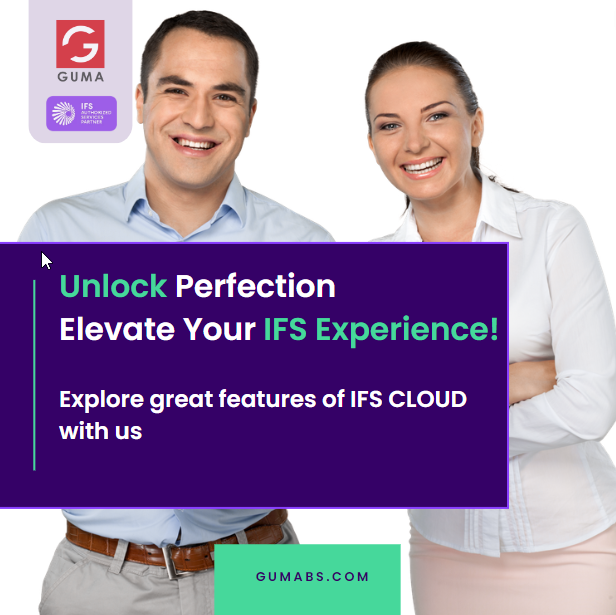Navigating Greenfield IFS ERP Implementation in Foreign Manufacturing Ventures
Introduction
In today’s globalized business landscape, many companies are expanding their horizons by investing in foreign countries and establishing manufacturing plants in distant locales. While this strategy brings numerous benefits, including cost advantages and market access, it also presents unique challenges, particularly when it comes to implementing an Enterprise Resource Planning (ERP) system. In this article, we will explore the complexities and opportunities of embarking on a Greenfield ERP project in the context of international manufacturing expansion.

The Challenge of Greenfield ERP in Foreign Ventures:
Implementing an ERP system from scratch in a foreign manufacturing plant can be a daunting task, primarily due to the following challenges:
1. Resource Constraints:
During the initial establishment phase of a foreign manufacturing plant, resources are stretched thin. Companies are busy with tasks like preparing the environment, procuring machinery, identifying suppliers, and securing customers. Typically, there’s little to no dedicated team available to handle the ERP project.
2. Unclear Requirements:
In a new environment, plant-specific and country-specific requirements and processes may not be entirely clear from the outset. There might be a dearth of data to initiate the ERP system, such as no machines (and thus no defined work centers), unspecified products (and hence no product structure), and no warehouse (leading to no location definitions).
3. Overcoming the Gray Areas:
The Greenfield ERP project begins with essentially every aspect in a “gray” state, lacking the foundational data and structure necessary for a functioning ERP. This can make the project seem like building from the ground up.
4. Simultaneous Launch with Factory Operations:
In many cases, a Greenfield ERP project in a foreign manufacturing venture is expected to go live at the same time the factory is ready to begin production. This concurrent launch can create immense time pressure, as the ERP system must be fully operational to support critical business processes and operations from day one. Delays or issues in the ERP implementation can have a direct impact on the manufacturing output and overall business performance, making it essential to meet tight deadlines while ensuring the system functions seamlessly.
Advantages of Greenfield ERP in Foreign Ventures:
While the challenges are apparent, there are some significant advantages to pursuing a Greenfield ERP project in a foreign manufacturing venture:
1. No User Resistance:
Since no previous system exists, there won’t be any user resistance to change. This creates a clean slate for the ERP system.
2. Smooth Transition:
Without the need for a cut-over from an existing system, there’s less risk of disrupting ongoing operations. The ERP implementation can commence without a hitch.
GUMA’s IFS CLOUD – Success Stories & RECOMMENDATIONS
GUMA, an experienced player in Greenfield ERP implementations, has successfully navigated two projects, one in China and another in Vietnam. Their valuable insights have paved the way for recommendations that can benefit companies embarking on similar journeys:
1. Phased Approach
Consider phasing the ERP project. Begin with a basic setup, and plan for incremental improvements over time. This aligns with the organization’s growth and ensures that complex processes are introduced when there are enough resources to manage them effectively.
2. Use Standard Solutions
Rather than getting bogged down by exceptions, focus on adopting standard ERP solutions. Complexity can be introduced gradually as operations grow and stabilize.
3. Start Simple
At the initial stage, it’s wise to keep the ERP solution as simple as possible. This caters to the limited resources and keeps processes streamlined. As the organization expands, complex features can be added.
Conclusion
Greenfield ERP implementation in foreign manufacturing ventures is undoubtedly challenging, but it offers a unique opportunity to build a tailored system without the constraints of legacy infrastructure. By heeding the recommendations and lessons from GUMA, businesses can navigate these challenges successfully and position themselves for long-term success in their international endeavors.
ABOUT THE AUTHOR
With over 20 years of professional expertise in the IT software industry, including an impressive 19-year tenure in a managerial position at IFS Turkey, Göksel Sanbay brings a wealth of experience to the table. Throughout his career, he has successfully managed dozens of hands-on ERP, EAM, and ESM projects, leaving a trail of satisfied clients and successful implementations.
Notably, he has also excelled as a solution architect, leaving his mark on various reference IFS projects. His passion for innovation and driving efficiency has led him to embark on a new journey. In July 2022, he founded GUMA Business Solutions, a dynamic consulting company exclusively dedicated to crafting cutting-edge business software solutions, with a specialization in IFS Applications.
At GUMA, we thrive on challenges and aspire to take businesses to new heights through tailor-made software solutions that streamline operations, boost productivity, and empower growth








